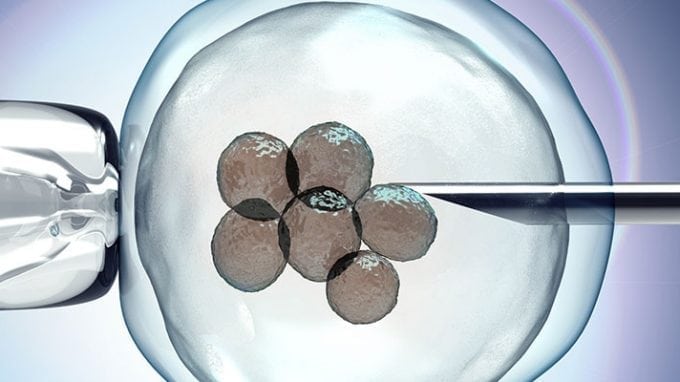For decades, IVF has helped millions of couples undergoing infertility in conceiving a child. Although the procedure is extremely effective when all other avenues have failed, each IVF attempt is enormously expensive, invasive and emotionally taxing. Thus, it is not surprising that most couples undergoing IVF are anxious to increase their odds of success. Recent studies have shown that use of a low-cost compound called EmbryoGlue during embryo transfer significantly improves the odds of pregnancy.
What Is EmbryoGlue?
EmbryoGlue, as its cleverly descriptive marketing name suggests, is a substance that researchers believe helps an embryo implant, or “stick,” in the uterus after it is transferred to a woman’s uterus during IVF. EmbryoGlue is not actually glue but a substance that contains high levels of a substance called hyaluronan. Hyaluronan is a naturally-occurring substance in a woman’s uterus, ovaries and fallopian tubes and is thought to assist in making the uterus “stickier” so that the embryo implants. In natural conceptions, the level of hyaluronan in a woman’s uterus increases around the time the embryo implants, and thus researchers believe that it plays a critical role in assisting implantation.
How Is Embryo Glue Used in IVF?
One hour before embryo transfer, the embryos are placed in a medium enriched with EmbryoGlue to bind the substance to the embryos. Additionally, EmbryoGlue causes the embryo transfer medium to thicken, becoming more similar to uterine fluids. Researchers believe that the thickening of the medium improves its ability to mix with uterine fluids, which helps to prevent the embryo from drifting.
Which Couples Benefit Most from EmbryoGlue?

Chances of Pregnancy with EmbryoGlue
When EmbryoGlue was first used in 2003, critics claimed that no evidence existed to show that the product actually improved conception. However, researchers conducted several additional studies that confirm that EmbryoGlue does, in fact, improve pregnancy rates in IVF. Researchers in one study in 2012 found that EmbryoGlue increased pregnancy rates in women by nearly 15 percent when controlling for other factors.
EmbryoGlue does not Harm the Embryo
With such promising results in improving pregnancy, some couples may wonder whether there are any downsides to using EmbryoGlue during embryo transfer. However, none of the studies on the use of EmbryoGlue have shown that the substance harms the embryo in any way. In fact, use of EmbryoGlue during embryo transfer appears to reduce the chances of ectopic pregnancy.
For couples undergoing IVF, it can be assumed that most, if not all, should ask their doctors about using EmbryoGlue during embryo transfer to increase their treatment’s effectiveness. Although using EmbryoGlue does not guarantee pregnancy, studies confirm that pregnancy chances significantly increase. With its low cost and safety for the embryo, there are no downsides to using EmbryoGlue during embryo transfer.




